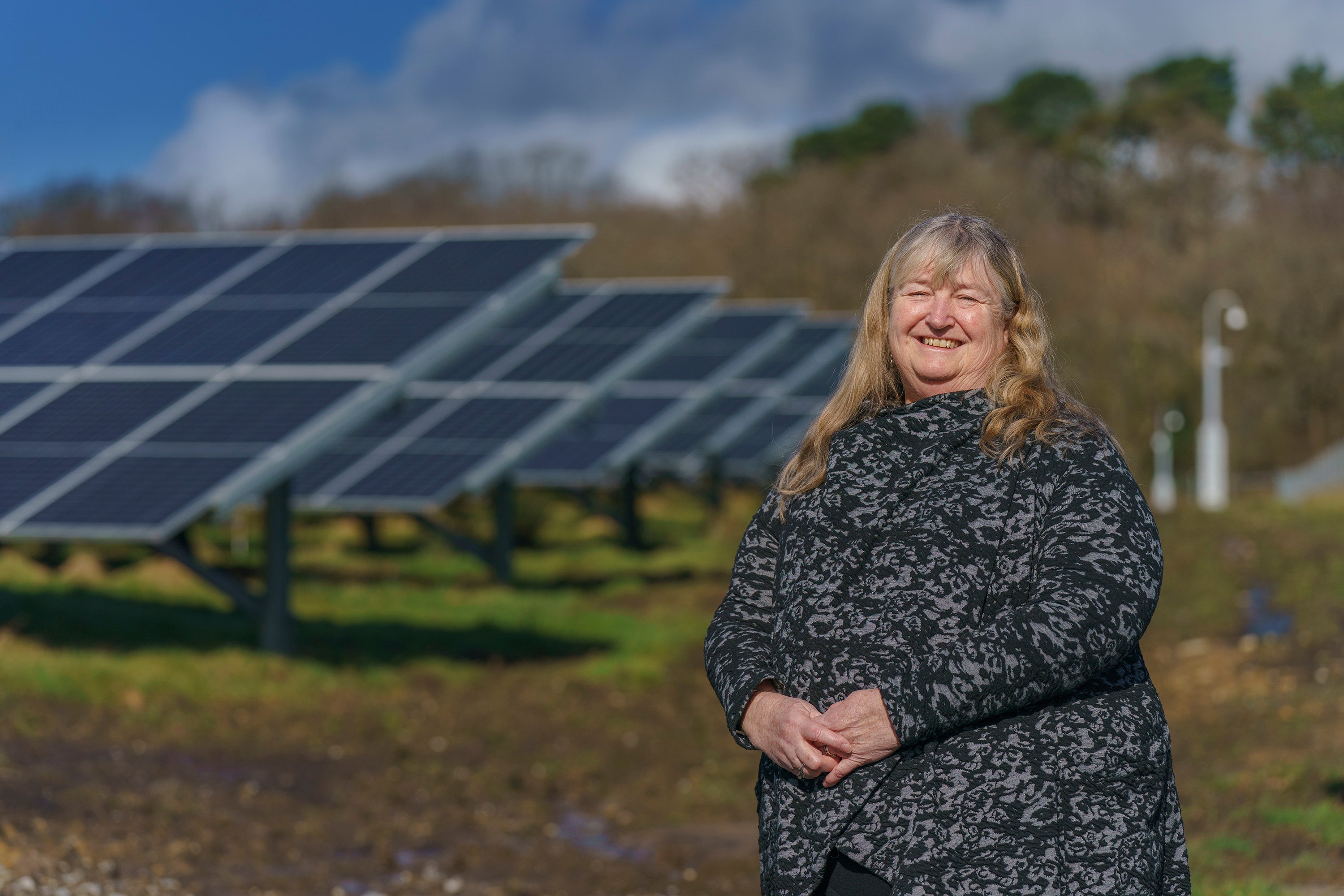Welsh solar farm powers Swansea hospital for 50 hours without back-up
‘It is not only lowering our electricity costs every day, but on some days covering 100 per cent of our electricity needs’

Your support helps us to tell the story
From reproductive rights to climate change to Big Tech, The Independent is on the ground when the story is developing. Whether it's investigating the financials of Elon Musk's pro-Trump PAC or producing our latest documentary, 'The A Word', which shines a light on the American women fighting for reproductive rights, we know how important it is to parse out the facts from the messaging.
At such a critical moment in US history, we need reporters on the ground. Your donation allows us to keep sending journalists to speak to both sides of the story.
The Independent is trusted by Americans across the entire political spectrum. And unlike many other quality news outlets, we choose not to lock Americans out of our reporting and analysis with paywalls. We believe quality journalism should be available to everyone, paid for by those who can afford it.
Your support makes all the difference.The UK’s first solar farm to be owned by a hospital has exceeded expectations in its powering of the site in Swansea - even providing all of its electricity on some days.
The photovoltaic station has contributed to the daily power needs of Morriston Hospital since being switched on towards the end of last year, the Welsh government said.
The solar farm has provided 100 per cent of the hospital’s electricity for a total period of 50 hours.
Emma Woollett, the chair of Swansea University Health Board, said she was “delighted” that the solar farm had “already exceeded” initial expectations.
“The health board’s aim is to reduce its carbon footprint and maximise opportunities to use renewable energy sources. The solar farm will play an important part in achieving that aim, but there is also an additional benefit in terms of cost savings,” she said.
“It is not only lowering our electricity costs every day, but on some days covering 100 per cent of our electricity needs.”
The solar farm - which only operates during the shortest days of the year - is estimated to have saved the hospital £120,000 in electricity bills since being turned on last November.
According to estimates, it will save 1,000 tonnes of carbon being released into the atmosphere - as well as £500,000 in bills.
The Welsh government said the farm had already produced 30,000 kWh surplus energy, which had been sold back to the grid at a profit for the hospital.
Julie James, the Welsh minister for climate change, said: “Morriston Hospital – which depends not only on the powers of their staff, but also the energy hungry machines to keep their patients alive and well – has blazed the trail in their switch to renewables, which makes sense both financially and to the health of the people of Wales.”




Join our commenting forum
Join thought-provoking conversations, follow other Independent readers and see their replies
Comments